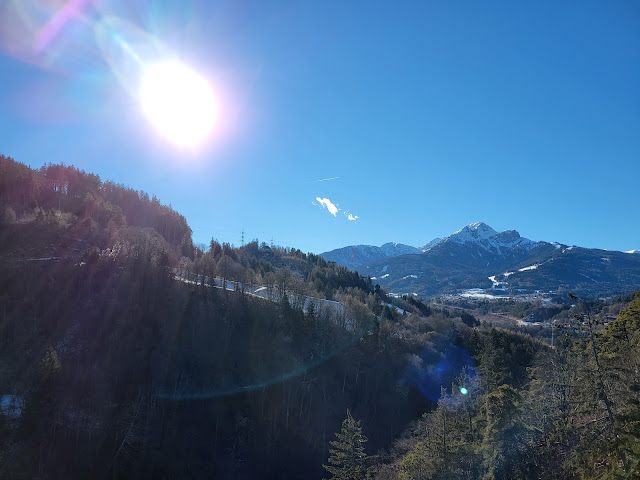anticipated part of moving to Germany for the semester. There is no better way to discover a place than on foot, and Tübingen has not disappointed by offering up the most extensive and stunning network of trails I have ever lived near in the form of Schönbuch Naturpark. While this post could easily go in the direction of me gushing over my love of this space and recounting in far too many words how I have been truly alone here, without the sound of a car or plane to keep me company, I want to instead focus in on the concept of Wanderung, or wandern gehen as a facet of German identity.
So what is Die Wanderung? For most English native speakers, the word offers up images of wandering, an almost aimless journey, but to the Germans it suggests something completely different. The most direct translation of wandern would be "to hike" but in many ways this guts Wanderung guts of its cultural significance. The word comes from the Old High German word wantôn which meant to change, linking the idea of the hike with change. For many Germans the idea of wandern gehen (going hiking) is tied with an almost philosophical reflection on the psyche and the inside as well as the outside-world. The idea is that nature is a place to go and change. The verb wandern encapsulates an understanding that one is going for both a physical and mental journey through nature.
There is no time in German history that exemplifies the combination of the mental and physical workout quiet like Die Romantik an artistic movement from the early 19th century where many German poets, painters and philosophers abandoned the city in favor of the natural world as the source of inspiration. As the artistic movement progressed, the Germany saw the birth of its train network—where in the footsteps of painters and poets—land was intentionally cleared for the purpose of creating leisure trails through the scenic German landscape. The Wandern craze of the 1800s is considered the first tourist boom in Germany, and led to the founding of the worlds first youth-hostel, designed to accommodate Wanderer in the Bavarian Alps. Starting with the trails 200 years ago, Germany today has a network of trails that spans more than 300,000 kilometers, which is almost enough trails to get from the earth to the moon.Modern German trail infostructure has certainly built on this large tradition as, using Schünbuch north of Tübingen as an example, the park offers trails which are used by hikers, bikers, dog-walkers, horseback-riders, joggers, scooters, and rollerbladers—all of whom I've seen on my near daily runs in the park. As the weather has improved here in central Württemberg, so too has the popularity of trails. I've encountered people kilometers away from town walking ever deeper into the forest as the sun is both rising and setting. Often there are groups, but even more common is to pass the lone Wanderer*in who has taken some of their free time from the day and devoted it to spending time in though outside. The reflective nature of the hike is something I have always understood but never seen articulated until coming to Germany.
I think what has always drawn me to running is that it gives me a chance at the end (or beginning) of my day to decompress and step outside of my head, my studies, and my anxieties. To lose myself in nature and peace. Truly, I've been wandern for years and hadn't even realized it. And it is this lack of realization that draws me to the idea of cultural difference. I think a lot of Americans like the outdoors, but we tend to categorize them as outdoorsy or as people who like to exercise. In either case the connection between the outside world and the mind is sadly dismissed, when for the Germans it is an essential part of meaning behind—wandern.





Comments
Post a Comment